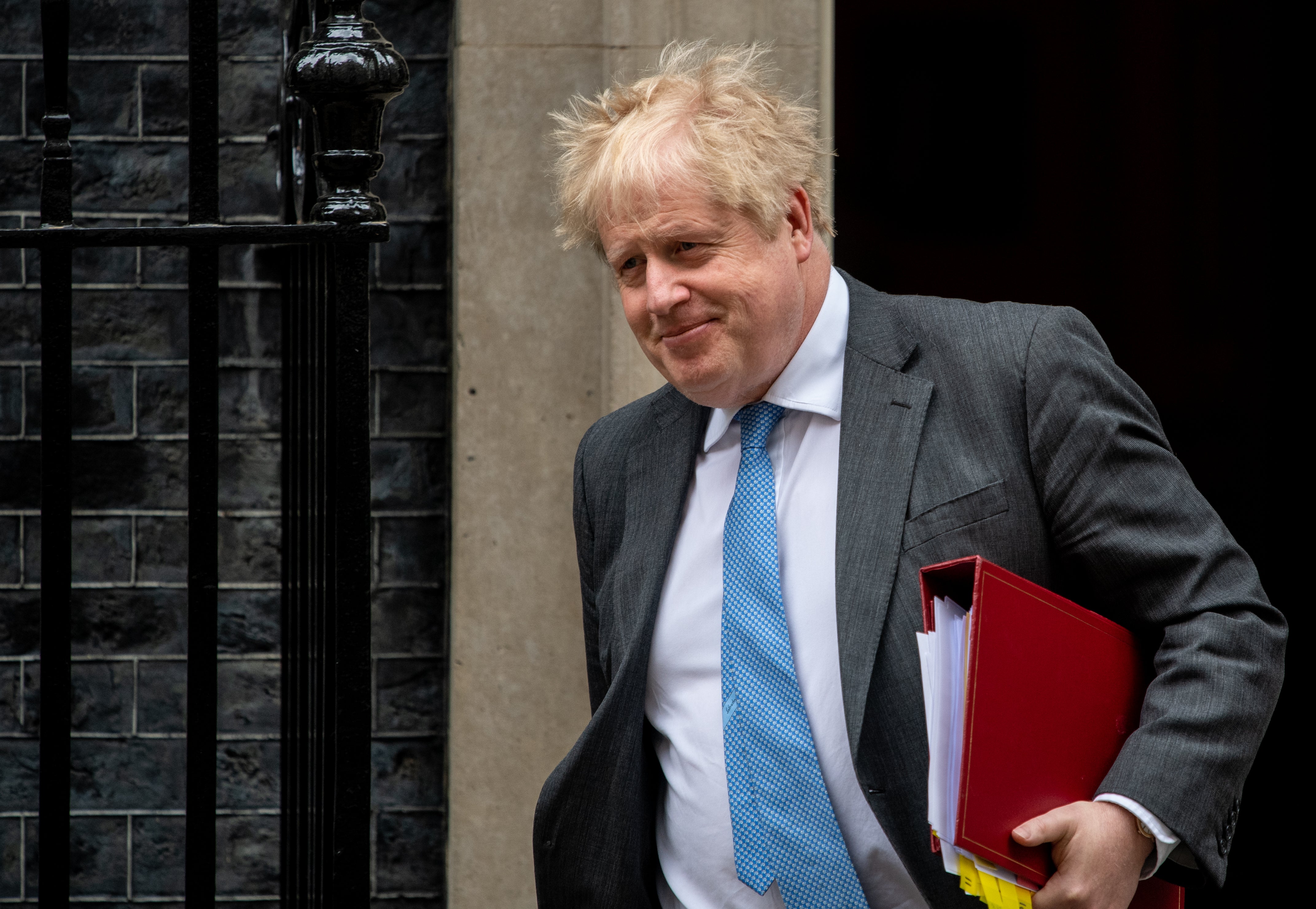Boris Johnson’s magic trick of cutting taxes and spending more should fool no one
Keir Starmer ought to have ‘won’ Prime Minister’s Questions on the cost of living, writes John Rentoul


Boris Johnson’s pre-election pitch is so ridiculous that it might just work. At a rowdy Prime Minister’s Questions ahead of next week’s local elections, he claimed again to be cutting taxes and raising spending at the same time. It was a good thing that the chancellor wasn’t there.
The prime minister opened the Alice in Wonderland session by listing the government’s achievements in this parliamentary session, passing “more than 20 acts”, ignoring the record number of bills that ran out of time. One of those acts was to raise the threshold for national insurance contributions from July, which Johnson said was worth £330 a year, “the biggest single personal tax cut for a decade”.
This is an absurd claim, because the so-called tax cut comes three months into a tax year in which rates of national insurance have been raised. The rise in thresholds is worth more than the rise in rates for 70 per cent of workers, but the net result is not a record tax cut. And the overall tax burden is still rising, with the stealth increase in student loan repayments this year and the big increase in corporation tax next year.
A few moments later, Johnson argued the direct opposite, claiming to be putting up taxes in the form of the health and social care levy, which is what the government calls the rise in national insurance rates, in order to pay for clearing the NHS backlog. “How pitiful that the party of Bevan should now be opposed to that investment in the NHS,” he declared.
This ought to be more embarrassing for Keir Starmer than it is, because Labour really ought to be in favour of higher taxes for the NHS – possibly not right now, but soon, because the party cannot argue for endless borrowing. It was the Labour government, after all, that last raised national insurance to pay for the NHS in 2002.
But Starmer can avoid any difficult questions about his alternative because Johnson claims to be cutting taxes and putting them up at the same time. Any Labour spokesperson can fall back on their plan for a windfall tax on oil and gas companies. That isn’t for the NHS; it is to pay for more generous help with energy bills; but it is good enough to get politicians through an awkward interview – and a windfall tax (on the privatised utilities) is after all how New Labour pretended to fund its modest promises before the 1997 election.
Starmer should have won today’s exchanges by sticking religiously to the script written for him by Lisa Nandy at last week’s shadow cabinet meeting, when she said the party should focus above all on the cost of living. Starmer didn’t mention lockdown parties once, and he didn’t even mention the High Court ruling that the discharge of hospital patients to care homes was unlawful – that was left to Daisy Cooper, the Liberal Democrat MP, later in the session.
To keep up to speed with all the latest opinions and comment, sign up to our free weekly Voices Dispatches newsletter by clicking here
Instead, the Labour leader devoted all his six questions to the subject of the squeeze on living standards, calling Johnson “the Comical Ali of the cost of living crisis”. He also had a prepared putdown of one of the prime minister’s more blustery answers: “These must be the Oxford Union debating skills we’ve heard so much about.”
On the facts, Starmer should have emerged the clear winner, despite the Tory side trying to make more noise than last week. At one point, Starmer slipped up, making too obvious an electioneering point: “A vote for Lab next week is a vote for…” In the chamber, we never found out what it was a vote for because we couldn’t hear. Lindsay Hoyle, the speaker, didn’t intervene, rather surprisingly, and Starmer is now well enough trained in Punch and Judy politics to simply carry on, knowing that the microphones still pick up his words for the audience outside (for them, it was “a vote for a very different set of choices”).
Yet Johnson won the moment in the chamber. His prospectus is nonsense, but he spoke fast and projected confidence. He listed a number of Labour councils that had got into financial difficulties and said it was the same with the Labour government which left the country “bankrupt” in 2010. It’s all rubbish, but Labour should worry that it works.
Johnson’s most damaging line was almost deadpan. Referring to Starmer, he said: “This guy is doomed to be a permanent spectator.” That is precisely what Labour MPs fear about their leader. Johnson does not deserve to survive, but he has defied logic before. It will be fascinating to see what the voters make of it all in the local elections next Thursday.



Join our commenting forum
Join thought-provoking conversations, follow other Independent readers and see their replies
Comments